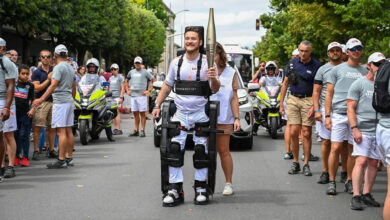What is the meaning and importance of August 30 Victory Day?

What is the meaning and importance of August 30 Victory Day?
The Great Offensive and the Commander-in-Chief Battle of the Turkish army under the command of the Great Leader Mustafa Kemal Atatürk, which started on August 26 and ended in victory on August 30, went down in history as one of the greatest heroic epics the world has ever seen. So, what is the meaning and importance of August 30 Victory Day? Here is detailed information about the meaning and importance of August 30 Victory Day…
The Great Offensive and the Battle of the Commander-in-Chief, which began on July 26, 1922 and was crowned with a great victory on August 30, was one of the greatest epics of heroism written in golden letters in history.

In 1919, after the First World War, the Allied Powers began to occupy Anatolia under various pretexts based on the provisions of the Mudros Armistice Treaty, and the Turkish nation, whose ammunition was taken away from its army, was trying to be left in a difficult situation.
Halide Edip Adıvar’s “Türk’ün Ateşle İmtihanı” During the days of occupation described in his book, the Allied navy settled in Istanbul, the French in Adana, the British in Urfa, Maraş, Samsun and Merzifon, and the Italians in Antalya and southwestern Anatolia.
On May 15, 1919, with the permission of the Entente states, the Greek Army landed in Izmir.
In the face of this situation, the Turkish nation, with the “consciousness of being a nation” that it has shown throughout history, started a movement against the occupation. There were two options, either surrender to the occupation forces or a country that had been destroyed and burned would rise again and rise from its ashes.
Upon the opening of the Turkish Grand National Assembly in 1920, the occupation forces intensified all their oppressive policies against Atatürk and his comrades-in-arms, especially on the Western Front. The Greek army came as far as Polatlı in 1921. In Polatlı, preparations were being made for the longest battle in the world.

On August 26, 1922, Commander-in-Chief Mustafa Kemal Pasha gave the order for the operation that started the Great Offensive after a year-long preparation period in order to completely expel the enemy army, which was stopped after 22 days and 22 nights of bloody battles in Sakarya.
On the morning of August 26, Commander-in-Chief Mustafa Kemal took his place at Kocatepe, located on the borders of Afyonkarahisar, to lead the battle with Chief of General Staff Fevzi Pasha (Çakmak) and Western Front Commander İsmet Pasha (İnönü).
The operation began at dawn with artillery fire and the Turkish soldiers attacked at first light, capturing Tınaztepe and driving the enemy away from Belentepe and Kalecik Sivrisi.
On the first day of the offensive, 1st Army troops captured the enemy’s first line positions in the 15-kilometer area between Büyük Kaleciktepe and Çiğiltepe. The 5th Cavalry Corps made successful attacks on the enemy’s transportation columns in the enemy’s rear, while the 2nd Army continued its detection mission at the front without interruption.

On the morning of August 27, the Turkish army resumed the offensive on all fronts, and on the same day Afyonkarahisar was liberated from enemy occupation by the 8th Division. On August 28 and 29, the successful offensive resulted in the neutralization of the enemy’s 5th Division.
On the night of August 29, the commanders evaluated the situation and agreed to take immediate action and conclude the offensive in a short time, and necessary measures were taken to implement the plan on August 30 without a hitch.
The Great Victory and a broken cart
On the eve of the Turkish Army’s most important victory in the War of Independence, Commander-in-Chief Mustafa Kemal Pasha ordered the troops to attack in Zafertepe Çalköy in Altıntaş district of Kütahya, now a town, on the morning of August 30.
The victory was achieved when the Turkish army, under the command of the Great Leader Mustafa Kemal Atatürk, completely surrounded and destroyed the Greek troops in Dumlupınar on both sides of the Allıören, Keçiler and Kızıltaş creek road in the Battle of Dumlupınar, which started on August 26. Some Greek troops, General Trikopis, General Dienis and many Greek commanders escaped from the open area in the Kiziltas Creek area.

On August 31, the day after the Great Victory, Commander-in-Chief Mustafa Kemal, who placed a map of the battlefields on a broken cart in the garden of a house in Zafertepe Çalköy, assessed the situation with Fevzi Pasha and İsmet Pasha and agreed to enter İzmir in order to prevent the Greeks from reorganizing their defenses and to defeat them.
“Armies, your first objective is the Mediterranean, forward!”
Mustafa Kemal Pasha, in the declaration he issued to be read to all officers and enlisted men on the Western Front in Dumlupınar on September 1 after the Great Victory, included the following statements:
“Armies of the Grand National Assembly of Turkey, in the Great Battle of Afyonkarahisar-Dumlupınar, you destroyed the basic existence of a cruel and proud army in an unbelievably short time. You have proved yourself worthy of the sacrifices of our great and distinguished nation. The great Turkish nation, which is our owner, is right to have confidence in its future. I have been closely observing your successes and sacrifices on the battlefields. I will not leave behind the duty of mediating the praises of our nation to you, and I will carry it out continuously. I have ordered the Commander of the Front to make a proposal to the Commander-in-Chief for reward. I demand that all my friends advance, bearing in mind that further battles will be fought in Anatolia, and that everyone should continue the competition with all his strength, using the power of reason and the resources of patriotism. Armies, your first objective is the Mediterranean, forward!”

The liberation of Afyonkarahisar on August 27 and Kütahya on August 30 was followed by the liberation of Gediz on September 1, Emet and Tavşanlı on September 3. The Turkish army, which drove the Greek Army into the sea in İzmir on September 9, fulfilled Mustafa Kemal Pasha’s order with great success.
For failing to fulfill his promise
One of the most memorable events of the Great Offensive was the suicide of Colonel Reşat Bey, the commander of the 57th Division, who shot himself on August 27, after the capture of Çiğiltepe was delayed by half an hour, due to the sorrow of not being able to fulfill his duty.
Mustafa Kemal Pasha was told that Colonel Reşat Bey had committed suicide when he telephoned the 57th Division Command, which was fighting on the ridges of Çiğiltepe, and read out the note he had written: “Although I promised you to take that position within half an hour, I cannot live because I could not fulfill my promise.”
Çiğiltepe was liberated from enemy soldiers 15 minutes after Colonel Resat Bey’s death.

“The foundation of the Turkish Republic was consolidated here”
Exactly two years after the Great Victory, on August 30, 1924, the Great Leader Atatürk came to Zafertepe Çalköy to attend the groundbreaking ceremony of the Martyr Sancaktar Mehmetçik Monument.
Reminding the participants of the ceremony two years ago, Atatürk described the Great Victory in the following sentences:
“The Battle of Afyonkarahisar-Dumlupınar and its final piece, the August 30 Victory, is the most important turning point in Turkish history. Our national history is full of great and brilliant victories, but I do not remember a battle as decisive as the victory won by the Turkish nation here, a battle as decisive in giving a new step not only to our history but also to the history of the world. It is obvious that the foundation of the new Turkish state, the young Turkish Republic, was strengthened here, its immortal life was crowned here. The Turkish blood flowing on this field, the souls of martyrs flying in this sky are the immortal guardians of our state and republic. With the victory it has won here, with the power and will it has revealed, the Turkish nation has once again put this certain fact in the bosom of history with a steel pen.”






